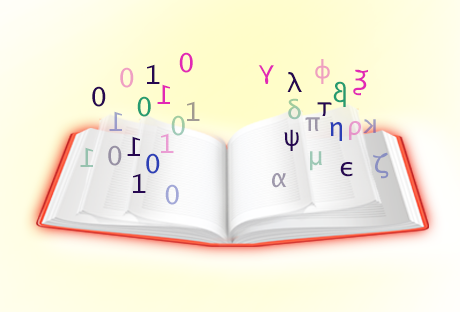JavaScript is disabled for your browser. Some features of this site may not work without it.
| dc.contributor.author | Γουρουντή, Κλεάνθη | el |
| dc.contributor.author | Αναγνωστόπουλος, Φώτιος | el |
| dc.contributor.author | Βασλαματζής, Γρηγόριος | el |
| dc.date.accessioned | 2015-05-18T15:00:12Z | |
| dc.date.issued | 2015-05-18 | |
| dc.identifier.uri | http://hdl.handle.net/11400/10656 | |
| dc.rights | Αναφορά Δημιουργού-Μη Εμπορική Χρήση-Όχι Παράγωγα Έργα 3.0 Ηνωμένες Πολιτείες | * |
| dc.rights.uri | http://creativecommons.org/licenses/by-nc-nd/3.0/us/ | * |
| dc.source | http://benthamscience.com/journal/index.php?journalID=cwhr | en |
| dc.subject | Infertility related stress | |
| dc.subject | Predictive path-model | |
| dc.subject | Personality | |
| dc.subject | Appraisal | |
| dc.subject | Coping | |
| dc.subject | Social support | |
| dc.subject | Infertility | |
| dc.subject | Cognitive Appraisals | |
| dc.subject | Infertile Women | |
| dc.subject | Anxiety | |
| dc.subject | Depression | |
| dc.subject | Neuroticism | |
| dc.subject | Pessimism | |
| dc.subject | Introversion | |
| dc.subject | Stress | |
| dc.subject | psychological stress | |
| dc.subject | Personality Traits | |
| dc.subject | Cognitive-Phenomenological Theory | |
| dc.subject | Stressors | |
| dc.subject | Pre-IVF Counseling | |
| dc.subject | coping strategies | |
| dc.subject | Fertility Related Stress | |
| dc.subject | Infertility Related Distress | |
| dc.subject | State Trait Anxiety Inventory | |
| dc.subject | Center for Epidemiological Studies-Depression | |
| dc.subject | Life Orientation Test | |
| dc.subject | Copenhagen Multi-centre Psychosocial Infertility | |
| dc.subject | Intracytoplasmatic sperm injection | |
| dc.subject | Στρες συσχετιζόμενο με τη γονιμότητα | |
| dc.subject | Έξυπνο μοντέλο-μονοπάτι | |
| dc.subject | Προσωπικότητα | |
| dc.subject | Εκτίμηση | |
| dc.subject | Αντιμετώπιση | |
| dc.subject | Κοινωνική υποστήριξη | |
| dc.subject | Υπογονιμότητα | |
| dc.subject | Γνωστικές εκτιμήσεις | |
| dc.subject | Υπογόνιμες γυναίκες | |
| dc.subject | Άγχος | |
| dc.subject | Κατάθλιψη | |
| dc.subject | Νευρωτισμός | |
| dc.subject | Απαισιοδοξία | |
| dc.subject | Εσωστρέφεια | |
| dc.subject | Στρες | |
| dc.subject | Ψυχολογικό στρες | |
| dc.subject | Χαρακτηριστικά προσωπικότητας | |
| dc.subject | Γνωστική-φαινομενολογική θεωρία | |
| dc.subject | Στρεσογόνα | |
| dc.subject | Συμβουλευτική πριν την εξωσωματική γονιμοποίηση | |
| dc.subject | Στρατηγικές αντιμετώπισης | |
| dc.subject | Άγχος σχετικά με τη γονιμότητα | |
| dc.subject | Δυσφορία σχετικά με την υπογονιμότητα | |
| dc.subject | Απογραφή κατάστασης άγχους | |
| dc.subject | Κέντρο Επιδημιολογικών Ερευνών-Κατάθλιψης | |
| dc.subject | Τεστ για τον προσανατολισμό στη ζωή | |
| dc.subject | Πολυκλινική Ψυχοκοινωνικής Υπογονιμότητας Κοπεγχάγης | |
| dc.subject | Ενδοκυτταροπλασματική έγχυση σπερματοζωαρίου | |
| dc.title | Psychosocial predictors of infertility related stress | en |
| heal.type | journalArticle | |
| heal.secondaryTitle | a review | en |
| heal.classification | Medicine | |
| heal.classification | Psychology | |
| heal.classification | Ιατρική | |
| heal.classification | Ψυχολογία | |
| heal.classificationURI | http://id.loc.gov/authorities/subjects/sh00006614 | |
| heal.classificationURI | http://zbw.eu/stw/descriptor/15790-5 | |
| heal.classificationURI | **N/A**-Ιατρική | |
| heal.classificationURI | **N/A**-Ψυχολογία | |
| heal.keywordURI | http://id.loc.gov/authorities/subjects/sh00006125 | |
| heal.keywordURI | http://id.loc.gov/authorities/subjects/sh2010007007 | |
| heal.keywordURI | http://id.loc.gov/authorities/subjects/sh85100264 | |
| heal.keywordURI | http://id.loc.gov/authorities/subjects/sh85067649 | |
| heal.keywordURI | http://lod.nal.usda.gov/768 | |
| heal.keywordURI | http://lod.nal.usda.gov/16450 | |
| heal.identifier.secondary | DOI: 10.2174/157340410793362159 | |
| heal.dateAvailable | 10000-01-01 | |
| heal.language | en | |
| heal.access | forever | |
| heal.recordProvider | Σχολή Επαγγελμάτων Υγείας και Πρόνοιας. Τμήμα Μαιευτικής | el |
| heal.publicationDate | 2010 | |
| heal.bibliographicCitation | Gourounti, K., Anagnostopoulos, F. and Vaslamatzis, G. (2010) Psychosocial predictors of infertility related stress: a review. "Current Women's Health Reviews", 6 (4), p. 318-332. Available from: http://www.eurekaselect.com/87036/article/psychosocial-predictors-infertility-related-stress-review [Accessed: 18/05/2015]. | en |
| heal.abstract | Objective: The objective of the present study was to review studies describing specifically the impact of certain personality traits, cognitive appraisals, coping strategies and social support on infertility related stress. Furthermore, the aim was to examine the interrelationships among these psychosocial potential predictors in order to develop a predictive psychosocial path-model of infertility related stress. The clinical application of the predictive model of infertility related stress would help the medical staff of fertility centers to identify infertile women who are at greater risk for infertility related stress and for adjustment difficulties and to foster the implementation of preventative and therapeutic interventions. Methods: A systematic search of the psychological and medical electronic databases (Medline, PsycINFO, CINAHL, EMBASE and Scopus) was performed. This review considered only quantitative, primary studies that were relevant to the objective of the review. Population of interest was considered to be infertile women undergoing fertility treatment. Independent variables were considered to be psychosocial predictors of infertility related stress. Outcomes (dependent variables) were considered to be anxiety, depression, and negative mood states. The development of the psychosocial path-model of infertility related stress was based on the principles of stress, appraisal and coping theories. Results: Nineteen studies met the inclusion criteria and finally included in the review. According to the review findings, psychosocial predictors of infertility related stress are: a) personality characteristics, such as neuroticism, pessimism and introversion, b) viewing infertility as a threat or a loss, c) low perceived control over the infertility condition and fertility treatment outcome, d) frequent use of avoidant/escape coping strategies, e) marital dissatisfaction and poor marital communication and f) impoverished social network. Based on the review findings, a predictive path-model of infertility related stress which diagrammatically represents the interrelationships among the independent variables and the interrelationships between the independent and dependent variables was developed. The produced diagrammatical-model shows that: a) the relationship between personality dispositions and fertility related stress is either direct or mediated by appraisal cognitions and coping strategies, b) the relationship between appraisal cognitions and fertility related distress is mediated by coping strategies and c) social support is associated with distress both directly and indirectly either through appraisal cognitions or through coping strategies. Conclusion: Although no single pattern of adjustment to infertility appears common, this review has identified several psychosocial factors that might make particular infertile individuals more vulnerable to stress. It is often a combination of factors which makes stress overwhelming. However, it is important to keep in mind that the risk posed by some factors may by mitigated by the presence of buffers. An insight into such risk and protective factors would facilitate the identification of women at risk of experiencing high infertility related stress and foster the implementation of tailored support, and therapeutic interventions. | en |
| heal.publisher | Yeh, John | en |
| heal.journalName | Current Women's Health Reviews | el |
| heal.journalType | peer-reviewed | |
| heal.fullTextAvailability | false |
Αρχεία σε αυτό το τεκμήριο
| Αρχεία | Μέγεθος | Μορφότυπο | Προβολή |
|---|---|---|---|
|
Δεν υπάρχουν αρχεία που σχετίζονται με αυτό το τεκμήριο. |
|||
Οι παρακάτω άδειες σχετίζονται με αυτό το τεκμήριο:








